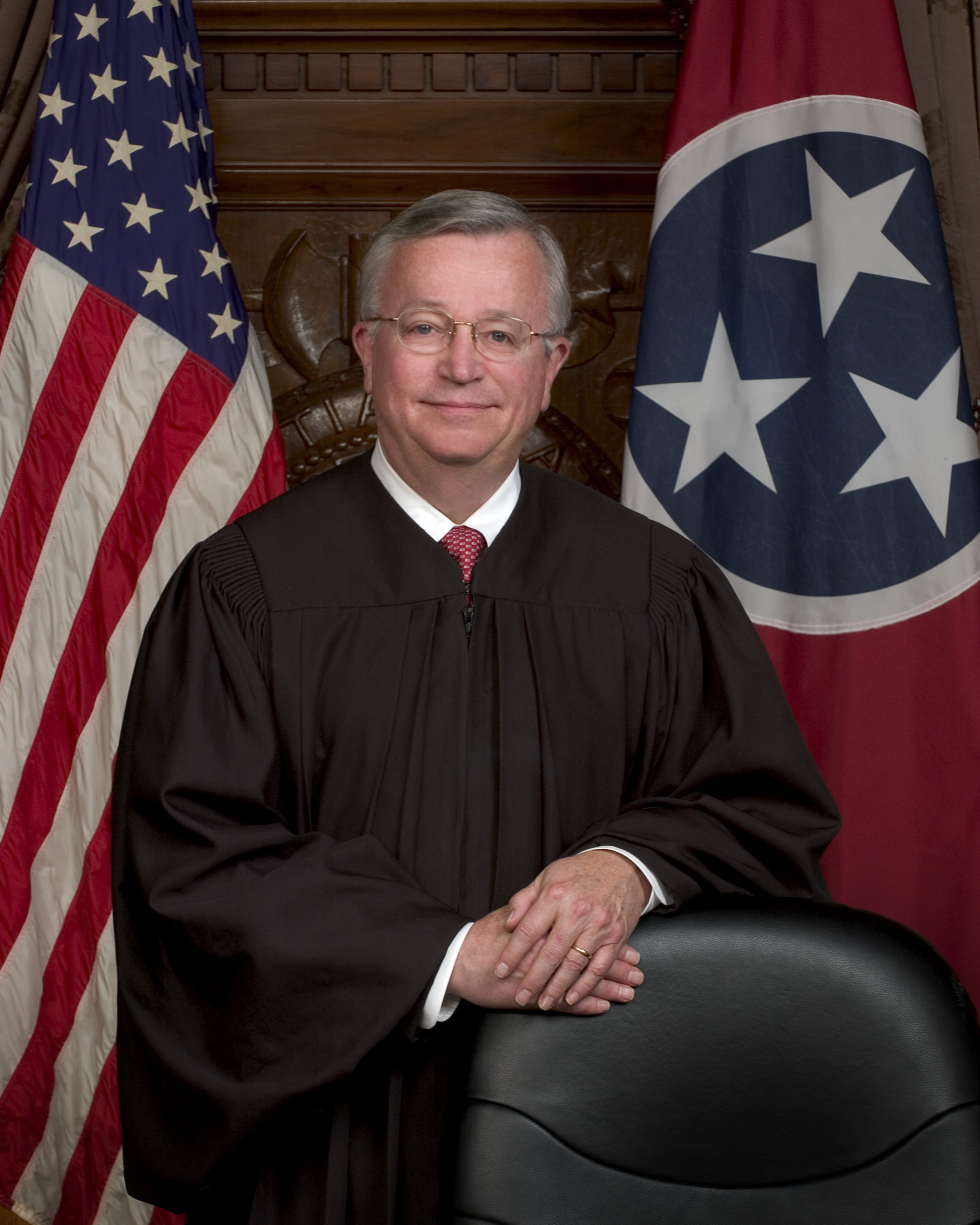NASHVILLE - Former Tennessee Supreme Court Chief Justice William "Mickey" Barker says an effort by some fellow Republicans in the state Legislature to unseat three incumbent Democratic justices in August elections is nothing less than "an attack on the entire judicial system."
The Signal Mountain Republican, who served nearly seven years on the state's highest court, called the effort led by Senate Speaker Ron Ramsey, R-Blountville, a "frightening" attempt to turn the judicial branch into another "partisan branch of government."
"We have three branches of government," Barker said in an interview. "Each are to be co-equal and each are to be separate. Two of those branches are political branches - the legislative and the executive. And the judicial branch is nonpolitical."
Barker said he is "very disappointed that our present legislative branch is apparently seeking to dominate all three branches. We've never had that in my lifetime in Tennessee, and it would be a real shame to see that occur."
The powerful Senate speaker is pressing an organized campaign to defeat current Chief Justice Gary Wade and Justices Sharon Lee and Cornelia A. Clark who are up on Aug. 7 in yes/no retention elections. Voters can opt to retain them or reject them and have them replaced.
Nashville's WTVF-TV reported earlier this week that Ramsey has been sharing a 31-page power-point presentation with business, victims' rights and other groups that outlines potential lines of attack including charges the justices have been "soft on crime" and anti-business.
Ramsey is seeking funding for a vote-no campaign.
"Don't go out here and tell me that this is a nonpartisan group and that there's never been politics involved," Ramsey told the television station. "There has always been politics involved."
Efforts to reach Ramsey on Wednesday were unsuccessful.
Tennessee's five state Supreme Court justices and other appellate judges currently are appointed by governors from a list of nominees forwarded by screening panels. They then come up at the next election on a non-partisan retention ballot.
Trial court judges run in traditional elections where they can face opponents. Critics have argued for years that the Tennessee Constitution does not allow for retention ballots, although the system has been upheld by no less than two special Supreme Courts.
On Wednesday, Republican Gov. Bill Haslam told reporters he's not taking part in Ramsey's effort but he shied away from direct criticism.
"He has the full right to go do that and make his argument," Haslam said. "It's just not something I'm going to be taking part in."
Asked why, Haslam said, "I think on an election like this, I'm trying to think of the best way to put that, to let the candidates themselves speak for why they should be retained. And as the person who would be appointing their replacement, I don't think it's an appropropriate role for me to play."
Still, the governor voiced concern the effort could "muddy the waters" on a separate constitutional amendment in November on appellate retention elections that he and many judges support as a way to keep partisan politics out of the process.
Meanwhile, Justices Wade, Lee and Clark are barnstorming the state, meeting with lawyers, businessmen and other groups. On Wednesday, the three met over lunch with Chattanooga attorneys and business people.
In an interview afterward, Clark said the three justices are making the case to voters why they should be retained. They plan to travel as a group and individually. And they're enlisting lawyers to be ready to explain details of cases.
In fashioning criticisms, Ramsey aides have attacked rulings in specific cases.
"The Constitution is not a technicality," said Clark, who likened judges to sports referees.
"We resist labels that we are pro-business or anti-business, that we are pro-crime or anti-crime," she said. "As individuals, we want safe and and stable communities just like other people do, but our job is to call it as we see it."
When anyone violates the law, whether it's a street thug, a wealthy businessman or a law enforcement officer, "It's our job to enforce penalties and laws that apply," Clark said.
"Fair and impartial courts is the sole thing we strive for. We believe if we do that correctly, the rest follows naturally - there will be less crime, there will be safer streets, businesses will be stable and individuals will have opportunities in the greatest country in the world."
In a telephone interview, former Court of Appeals Judge Lew Conner, also a Republican, accused Ramsey of cherry-picking specific cases to present the justices in the worse possible light. The three have upheld 18 of 20 death sentences, Conner said.
One of the sentences overturned involved a man in which the issue of mental retardation had been raised on appeal, Conner said. Due to U.S. Supreme Court rulings, the Tennessee justices had no choice but to send the matter back to the trial judge, he said, noting the prosecutor agreed to a life sentence.
Conner said political elections would result in a flow of money from interests with deep pockets, pointing to states like West Virginia where big money have shaped elections and courts.
"The people who really care most about people who get there [on Supreme Court]?" Conner said. "Plaintiffs on one side. Insurance lawyers on the other - or groups with a very special interest and courts having a position opposed to labor or for labor. Opposed to big business or for big business."
Conner also said that Wade, Lee and Clark were all recommended for retention by the Judicial Evaluation Commission, a panel comprised of several members appointed by Ramsey himself.
Reporter Judy Walton contributed to this article.
Contact Andy Sher at (615) 255-0550 or asher@timesfreepress.com.

